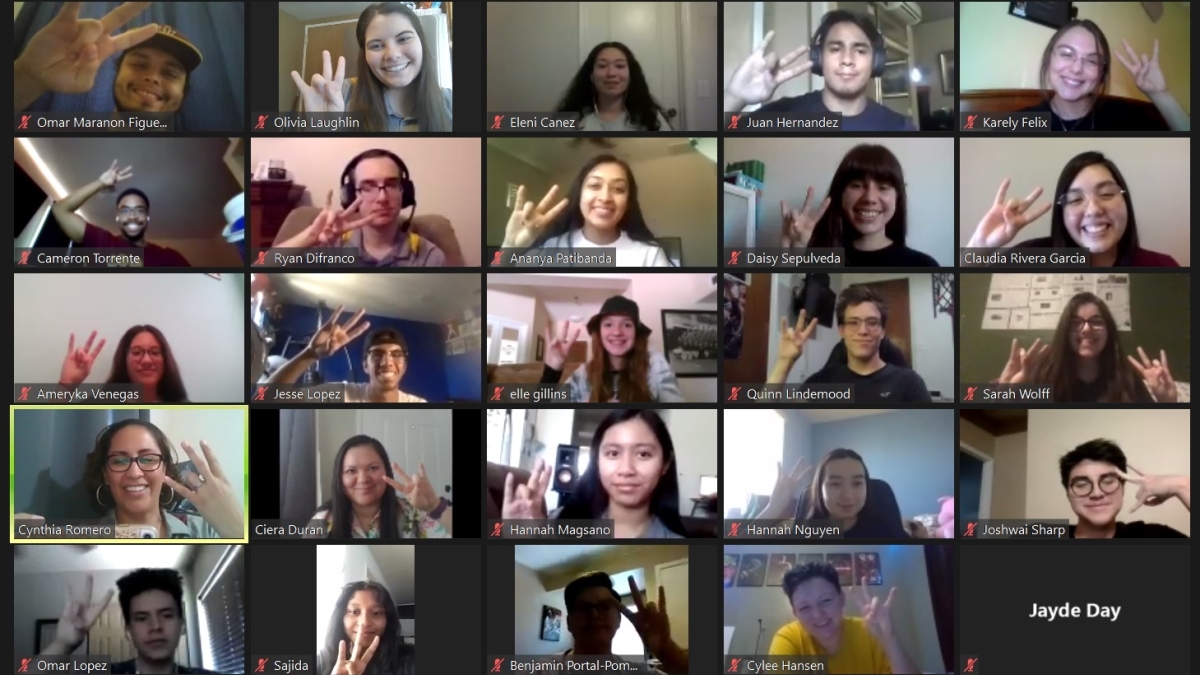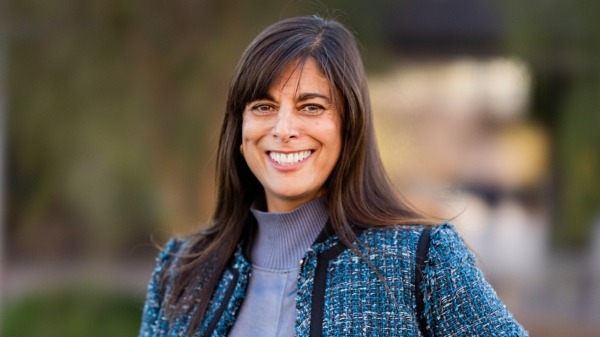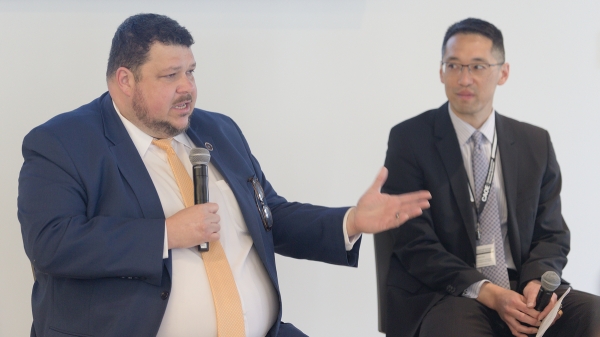STEM-focused online summer program helps underrepresented students find path to college success

The Joaquin Bustoz Math-Science Honors Program online community.
This summer, high school senior Eleni Canez participated in Arizona State University’s Joaquin Bustoz Math-Science Honors Program (JBMSHP), a program established to provide underrepresented students in science, technology, engineering and mathematics (STEM) fields the opportunity to begin college-level math before graduating high school.
The program went online this summer due to the COVID-19 pandemic and switched gears to focus more broadly on college success, but Canez said she came out of the program feeling more prepared for college with a clear path forward.
“I wouldn’t trade the conversations that we had in JBMSHP this summer for anything,” Canez said. “I have this newfound confidence in terms of applying for college, and I figured out what I want to major in. I don't think I would've come to these realizations if I hadn't had the program.”
Through the program, Canez discovered that she aspires to pursue a career in STEM as a statistician focusing on epidemiology. She is one of 26 high school students to complete the JBMSHP this summer — 58% of which will be first-generation college students and 89% of which are from groups that are underrepresented in STEM.
“All of the students strive to go to college to pursue their dreams. However, oftentimes they don’t have family members or mentors in their lives that have been to college to show them how to do it,” said Cindy Barragán Romero, JBMSHP program manager. “We show them that it is possible and teach them how while developing a sense of family and community they can rely on.”
This year’s seven-week program was led by Barragán Romero and JBMSHP coordinator Ciera Duran as well as several success coaches and JBMSHP alumni. In years past, students lived on ASU’s Tempe campus while completing a university level math course, but with the move online, the JBMSHP team created a virtual community where students connected with peers while gaining insight into the college experience.
Each day, the students watched presentations from a variety of speakers including mental health professionals, representatives from ASU clubs and organizations, admissions specialists and more. In addition to hearing from speakers, success coaches gave advice, shared about their personal college experiences and led hands-on activities and conversations.
“With all of the academic cancellations due to COVID-19, especially over the summer, we wanted to provide something more than an ASU online class,” said Duran. “It was important for us to offer a safe space for the students to talk to each other and get reliable answers about their college fears.”
High school senior Jesse Lopez, who aspires to be an aerospace engineer, said he was able to not only become more prepared for college but also learn how to communicate better virtually.
“If not for the JBMSHP, I know I wouldn’t have gained these virtual communication skills. Especially under current conditions, virtual meetings and virtual everything are way more common, so it’s important to know how to communicate through a computer,” he said.
Since its inception in 1985, 2,600 students have successfully completed the program through The College of Liberal Arts and Sciences, with many now working in the STEM field as engineers, researchers, medical practitioners, business owners and educators. Many who have completed the program continue to be involved and remain a part of the community.
Ryan DiFranco, a JBMSHP alumnus and undergraduate student studying chemical engineering at ASU, works in the program as a success coach. He’s been a part of the program for six years and said his fond memories of the program motivated him to return as a mentor and give back to a program that had helped him.
“For many students, this program is what makes them realize that they can achieve whatever they put their minds to,” DiFranco said. “I've known several people, either as colleagues or students, who have decided to go to college solely because this program showed them that they're strong enough. For all alumni of this program, there is a lifelong community that is formed.”
To learn more about the JBMSHP and how you can support the program, visit jbmshp.asu.edu or contact the team at mshp@asu.edu.
More Science and technology

The science behind chronic stress
Stress comes in many shapes and sizes. There’s the everyday stress of preparing for a final exam or being stuck in traffic. And…

ASU planetary scientist to be inducted into the National Academy of Sciences
The National Academy of Sciences is inducting School of Earth and Space Exploration Director Meenakshi Wadhwa into the 2023 class…

Unlocking the potential of AI for homeland security
“Can we do what we're doing now cheaper, more efficiently, more effectively?” Adam Cox, director in the Office of Strategy and…